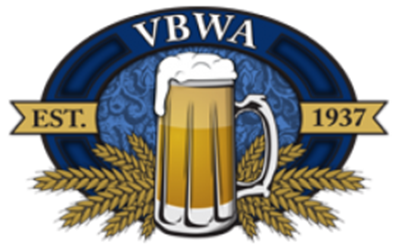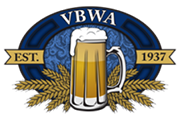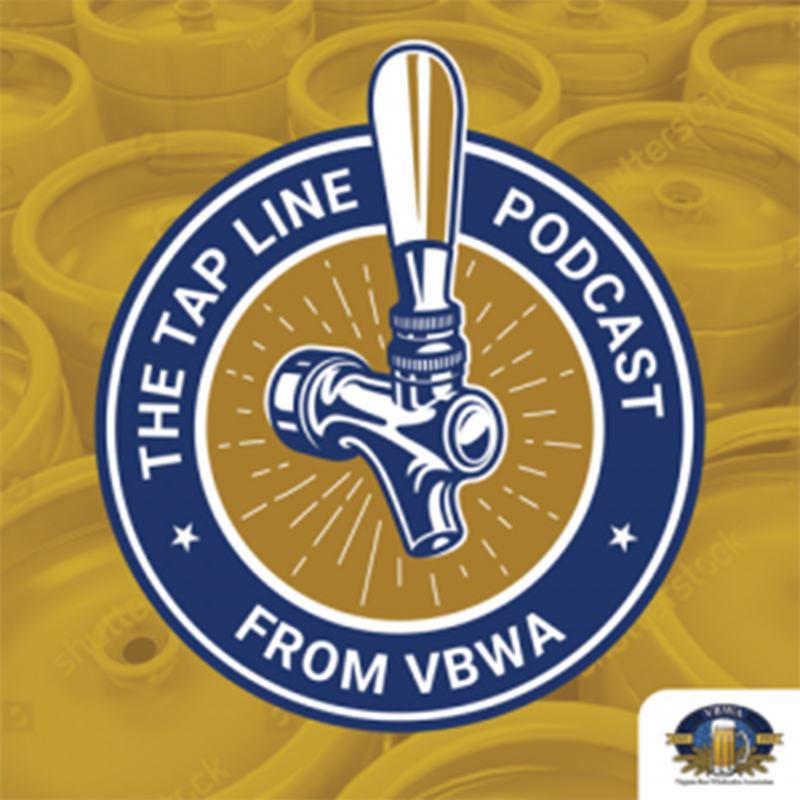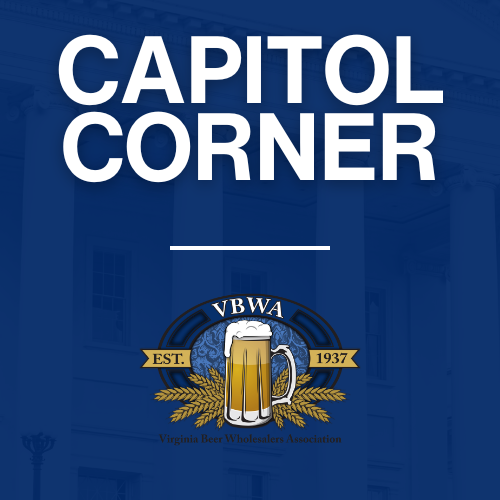
Before we kickoff what is sure to be one of the wildest election years in Virginia history, in which all 140 seats are up for grabs, first thing’s first: the 2023 Virginia General Assembly convenes today with a Republican-controlled House of Delegates and Democratic-held Senate.
At the Virginia Beer Wholesalers Association, here’s where we are focused as we head into this short session (at least 30 days in odd years, though the session is highly likely to be extended).
Workforce
Gov. Glenn Youngkin wants to consolidate the state’s 1,500 workforce development programs into a single department. Currently, the state’s workforce programs are spread across 13 agencies and six secretariats, using $485 million in federal and state funding.
VBWA applauds the administration in this bipartisan-backed effort. These agencies do a great job, but there needs to be more coordination among them. Part of our interest is to ensure the funding is effectively used and to build up our own workforce needs: Commercial truck drivers (CDLs) are critical to our industry and there is a major nationwide shortage of them. Anything we can do to support more workforce training for drivers, mechanics, and others who keep the beer (business) flowing, the better.
Youngkin’s proposals must be approved in his introduced budget and there will be legislation supporting the consolidation effort.
Right to work
We expect to see proposals to repeal Virginia’s right-to-work status, which prohibits forced union membership and payment of dues as a condition of employment. We are committed to protecting Virginia’s right-to-work status. That is a core tenet of the beer wholesalers and we will oppose any repeal bills vigorously.
ABC Privatization
With Republicans maintaining control of the House, the ABC “Privatization” issue resurfaced last year and was quicky defeated. We expect a similar bill again this year and will once again remind legislators why privatization is a bad idea. ABC is a statewide operation that has contributed more than $2.6 billion to Virginia’s general fund in the last five years — dollars that go to education, infrastructure, and state services.
Limited State Self-Distribution for Craft Brewers
Last year, legislators approved a study to determine how all brewery licensees could offer limited self-distribution directly to retailers, which would be particularly helpful for most craft brewers.
The idea was to model the plan similar (but not identical) to the Virginia Wine Distribution Company (VWDC), a program run by the Department of Agriculture that allows farm wineries access to the market without going through a traditional wine distributor. It has a Board that consists of wineries and wine distributors, limits on the volume and operates at a deficit, so requires an annual state appropriation. It’s run out of the Department of Agriculture because it’s a way to support wineries, which are agricultural businesses.
Beer distributors participated in this study over summer 2022 and worked closely with the Virginia Craft Brewers Guild, part of the Virginia Manufacturers Association. We are discussing the development of a Virginia Beer Distribution Company, which would have no impact on the VWDC. Currently, the consideration is a 500-barrel cap for breweries to distribute to retailers. That cap would cover every craft brewer in Virginia that isn’t currently involved in a traditional distributorship model, based on the Commonwealth’s 2021 tax data.
Of note: To our surprise, Senate Bill 1371 was introduced to create an exemption that would allow craft brewers to sell up to 5,000 barrels of beer per year to retail licensees. This bill, sponsored by Sen. Jill Vogel (R-Warrenton), was not part of any discussions with the Craft Brewers Guild, and we will strongly oppose it.
ABC Licensing for Financial Institutions running Airport Lounges (House Bill 1753)
Legislators will a consider different category of ABC license that allows financial institutions to operate an airport lounge and serve mixed beverages, without a food-sales requirement. As beer wholesalers, we track all bills that create new types of ABC licenses, as this opens our members up to new types of customers and sets new precedents going forward for businesses.
Crossover products (Senate Bill 809)
Many new “crossover” beverages — drinks known to consumers as non-alcoholic products that are creating alcoholic variants — are entering stores in Virginia and legislators will determine how their displays should be regulated. One of the more well-known products to enter Virginia recently is Hard Mtn Dew, the alcoholic sibling of Mountain Dew. Lipton also plans to introduce a “Hard” iced tea this year, and Monster Beverage also has a hard variant of its popular energy drinks.
Our concern is that consumers don’t recognize that these crossover brands — especially when marked with the ambiguous “Hard” label — are alcoholic products, and we believe there should be signage and displays to make clear that the beverages include…something extra.




